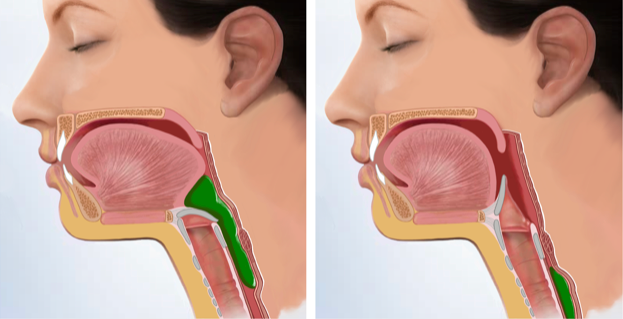How To Treat Zenker's Diverticulum
How to Ease the Discomfort of Zenker's Diverticulum: A Gentle Approach
Introduction
Zenker's diverticulum, a rare but troublesome condition, can cause discomfort and disrupt one's daily life. This pouch-like outpouching of the esophagus can lead to symptoms like difficulty swallowing, regurgitation, and chronic coughing. If you or someone you know is dealing with Zenker's diverticulum, there's hope for managing this condition. In this article, we'll explore various treatment options and lifestyle changes that can bring relief, all while maintaining a gentle and holistic approach.
Understanding Zenker's Diverticulum
Zenker's diverticulum is a type of outpouching that develops in the upper part of the esophagus, typically where it meets the throat. This pouch can trap food and liquids, causing them to collect and ferment. Over time, this can lead to uncomfortable symptoms like:
1. Dysphagia: Difficulty swallowing, often leading to choking or aspiration.
2. Regurgitation: The regurgitation of undigested food or liquid.
3. Chronic Cough: Coughing that doesn't seem to have an apparent cause.
4. Bad Breath: Foul-smelling breath due to trapped, rotting food.
It's essential to consult with a healthcare professional if you suspect you have Zenker's diverticulum, as they can diagnose and recommend the most suitable treatment options.
Non-Surgical Approaches
1. Dietary Modifications: Making simple changes to your diet can help alleviate symptoms. Start by eating smaller, more frequent meals, and avoid foods that are hard to swallow. Chewing your food thoroughly can also make a significant difference.
2. Postural Techniques: Certain postures, like the "chin tuck" technique, can help redirect food and liquids away from the diverticulum during swallowing. Your healthcare provider can guide you on using these techniques effectively.
3. Medication: Depending on your symptoms, your doctor may prescribe medications to manage issues such as acid reflux, which can exacerbate Zenker's diverticulum.
Surgical Options
If non-surgical methods aren't effective or your condition is severe, surgical intervention may be necessary. Two common surgical procedures for Zenker's diverticulum are:
1. Diverticulectomy: This surgical procedure involves removing the pouch-like diverticulum itself. It's a common choice when the diverticulum is large or causing severe symptoms.
2. Myotomy: In a myotomy, the muscles at the base of the diverticulum are cut to allow for easier swallowing. This is typically recommended for smaller diverticula or when the patient is not fit for a full diverticulectomy.
Holistic Approaches
In addition to medical and surgical treatments, holistic approaches can help ease the discomfort of Zenker's diverticulum:
1. Lifestyle Adjustments: Simple changes like eating slowly, avoiding alcohol and caffeine, and not lying down right after meals can make a big difference.
2. Stress Management: Stress can exacerbate digestive issues. Practicing relaxation techniques, such as deep breathing or yoga, can help manage stress levels.
3. Dietary Supplements: Consult with a healthcare professional about the potential benefits of dietary supplements, such as probiotics or digestive enzymes.
Conclusion
Living with Zenker's diverticulum can be challenging, but there are various treatment options available, ranging from non-surgical approaches to surgery. It's essential to consult with a healthcare provider to determine the most suitable treatment plan for your specific case. Additionally, incorporating holistic approaches and lifestyle changes can enhance your overall well-being and help manage the condition more effectively. By taking a gentle and comprehensive approach, you can find relief and improve your quality of life.


Post a Comment for "How To Treat Zenker's Diverticulum"